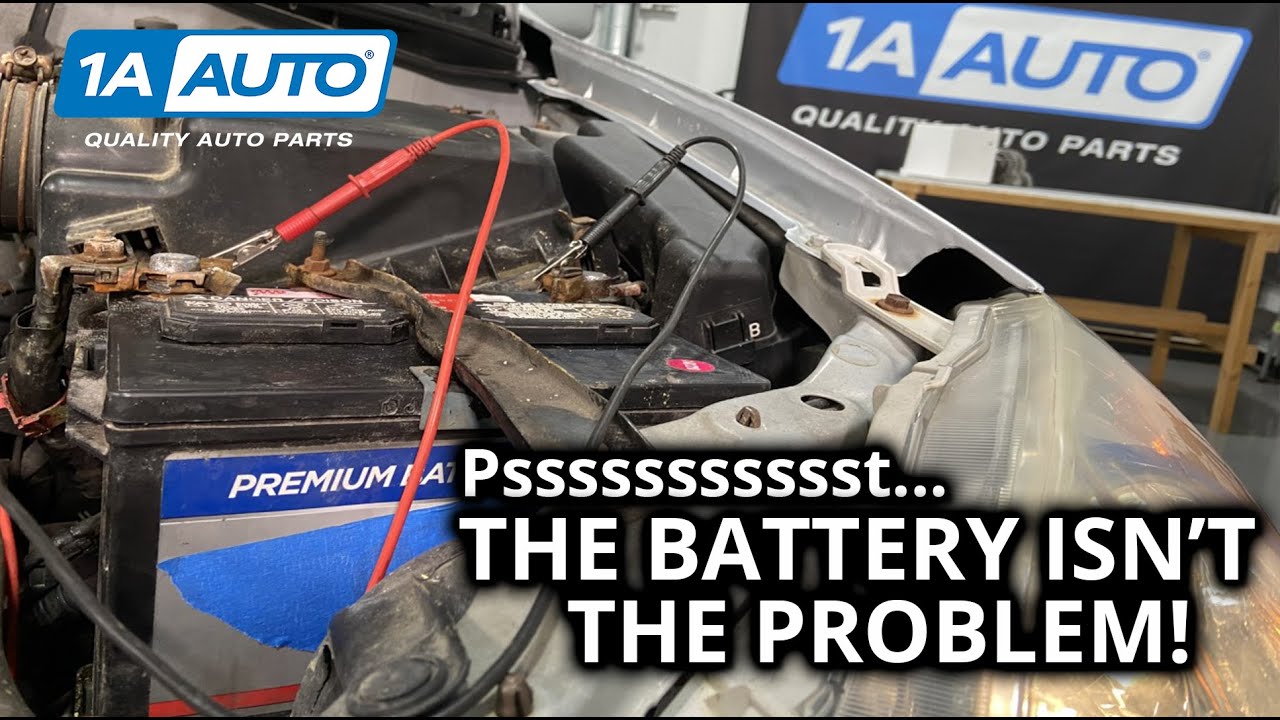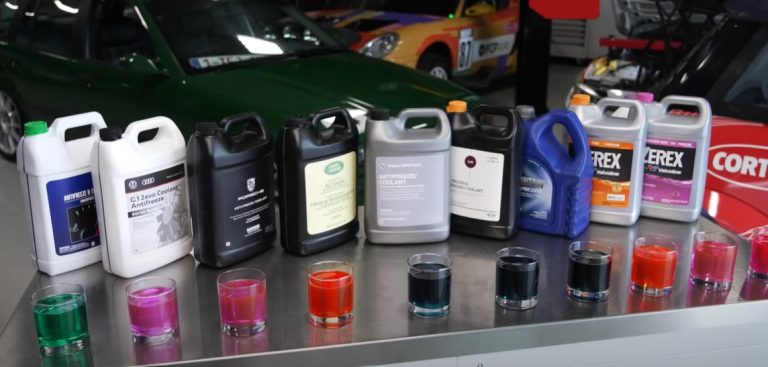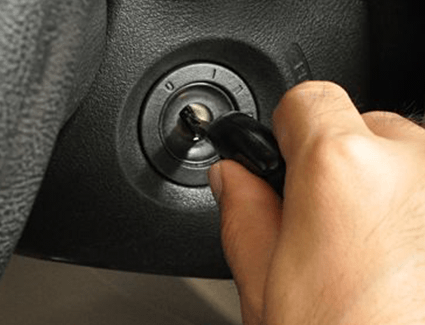Car Won’t Start With New Battery: Troubleshooting Tips
Your car won’t start, and you’ve just installed a brand new battery. Frustrating, isn’t it?
You’ve invested time and money, expecting a smooth start, but instead, you’re left scratching your head. You’re not alone in this. Many people face similar issues, and it can feel like a mystery. Imagine the peace of mind you’ll have once you understand why this happens and how to fix it.
We’ll dive into the possible reasons your car refuses to start even with a new battery. You’ll discover simple solutions that might save you a trip to the mechanic and help you get back on the road quickly. Keep reading, and let’s turn this setback into a simple fix!

Credit: www.familyhandyman.com
Car Won’t Start With New Battery
Common Causes
It’s frustrating when a car doesn’t start even with a new battery. Many drivers face this issue. Understanding common causes can help you find solutions. Cars are complex machines. Many parts work together to start the engine.
Read more: Car Starting Issues Solved: Expert Tips & Solutions
Faulty Starter Motor
The starter motor might be the problem. It helps the engine turn over. A faulty motor can prevent the car from starting. Listen for a clicking sound. This can be a clue.
Ignition Switch Issues
The ignition switch sends signals to start the car. If it fails, your car won’t start. Test the switch with a multimeter. It can show if the switch is broken.
Fuel Supply Problems
No fuel, no start. The fuel system must work properly. Check for clogs or leaks. Inspect the fuel pump. Ensure the tank isn’t empty. These can cause starting issues.
Bad Alternator
The alternator charges the battery. If it’s bad, the battery drains quickly. Look for dim lights or slow engine crank. These signs point to alternator issues.
Corroded Or Loose Battery Connections
Battery connections must be clean and tight. Corrosion can stop power flow. Inspect the cables and terminals. Clean them if needed. Ensure they are secure.
Blown Fuses
Fuses protect electrical circuits. A blown fuse can stop the car from starting. Check the fuse box. Replace any blown fuses. This simple fix might solve the problem.

Credit: www.carrepairadelaidesa.com.au
Checking Connections
Facing a car that won’t start with a new battery can be frustrating. Often, the issue lies in loose or dirty battery connections. Checking these connections might solve the problem and get your car running smoothly.
When your car refuses to start despite having a new battery, the issue might not be the battery itself. One of the first things to investigate is the connections. Ensuring all the connections are secure and free from corrosion can make a world of difference. Let’s dive into the process of checking connections and get your car back on the road.
Read more: Jeep Cherokee Won’t Start Push Button: Quick Fixes
Inspect The Battery Terminals
Start by popping the hood and taking a close look at the battery terminals. Are they tight and secure? Loose terminals can prevent the electrical current from flowing properly. Use a wrench to ensure they’re firmly attached, but be careful not to overtighten.
Look For Corrosion
Corrosion is a common culprit that disrupts the electrical flow. Check for any white, powdery residue on the battery terminals. This buildup can hinder your car’s ability to start. Clean it off with a mixture of baking soda and water using a wire brush.
Examine The Battery Cables
The battery cables are your car’s lifeline for power. Check them for any signs of wear or damage. If you notice cracks or fraying, consider replacing them. A damaged cable can be the invisible barrier between you and a running engine.
Check Ground Connection
The ground connection is crucial for completing the electrical circuit. Ensure the ground cable is securely attached to the car’s body or engine block. A poor ground connection can cause all sorts of electrical issues, including a car that won’t start.
Test The Connection Tightness
Even if everything looks fine, it’s worth double-checking the tightness of all connections. A slight wiggle can disrupt the flow of electricity. Give each connection a gentle tug to ensure they’re snug and steady.
As you work through these steps, remember your last road trip adventure. Imagine being stranded because of a simple loose connection. Addressing these small details can save you from future frustrations.
Have you encountered any unexpected challenges while checking connections? Share your experiences in the comments, and let’s learn together.
Inspecting The Starter
Car won’t start even with a new battery? Inspecting the starter might reveal the problem. A faulty starter can prevent the engine from turning over. Check for signs like clicking sounds or no noise at all when turning the key.
Sometimes, your car may not start even with a new battery. A common culprit is the starter. Understanding how to inspect the starter can help you troubleshoot and possibly resolve the issue. It’s always frustrating when your car doesn’t respond, especially after spending money on a new battery. But before calling a mechanic, a little investigation might save you time and money.
How To Identify Starter Issues
The starter is a small motor powered by the battery. It sets the engine in motion, allowing your car to start. If you turn the key and hear a clicking sound, or nothing at all, the starter could be the problem.
Check for these signs:
– Clicking Sound: This often indicates a faulty starter motor.
– No Sound: If there’s silence when you turn the key, the starter might not be engaging.
Signs Of A Failing Starter
A failing starter can show up in various ways. You might notice grinding noises or intermittent starting issues.
– Grinding Noise: This could mean the starter gear is worn out.
– Intermittent Start: If your car only starts sometimes, the starter might be failing.
Testing The Starter
You don’t always need professional tools to test the starter. A simple test can be done at home.
– Check Connections: Ensure all cables connected to the starter are tight and free of corrosion.
– Tap the Starter: Gently tap the starter with a tool. Sometimes this can temporarily fix the issue.
When To Seek Professional Help
If the problem persists, it might be time to consult a professional. A mechanic can perform more detailed diagnostics.
– Persistent Issues: If basic checks don’t solve the problem, professional help may be necessary.
– Complex Problems: Some starter issues require specific tools and expertise to fix.
Has your car ever left you stranded due to a starter issue? Share your experiences and tips below. Your insights might just help another reader out of a jam.
Assessing The Alternator
Facing car troubles with a new battery could point to alternator issues. The alternator charges the battery while driving. If it fails, the battery drains quickly, leaving your car unable to start. Regular checks ensure your alternator functions properly, preventing unexpected breakdowns.
When your car won’t start despite having a new battery, the problem might not be the battery itself. It’s time to consider the alternator. The alternator plays a crucial role in your car’s electrical system by charging the battery and powering the electrical components when the engine is running. If it fails, your battery won’t receive the charge it needs to keep your car running. Let’s look at how you can assess the alternator to get your car back on the road.
1. Listen For Unusual Sounds
Start by listening for any unusual sounds coming from the engine area. A failing alternator often makes a growling or whining noise. This sound can be a strong indicator that the alternator bearings are worn out.
Have you ever heard this noise but ignored it? It might be time to pay attention.
2. Check The Dashboard Warning Light
Most modern cars have a dashboard warning light that looks like a battery or says “ALT” or “GEN.” If this light stays on while driving, it could mean the alternator is not charging the battery properly.
Have you noticed this light but thought it was just a glitch? It’s worth investigating further.
3. Test The Battery Voltage
Use a multimeter to test the battery voltage. With the car off, the battery should read around 12.6 volts. Start the engine and check the voltage again; it should read between 13.7 and 14.7 volts.
If the voltage drops or remains the same, the alternator may not be providing enough charge.
4. Inspect The Alternator Belt
A loose or broken alternator belt can prevent the alternator from charging the battery. Check the belt for signs of wear or damage. It should be tight and free of cracks.
Did you know that a simple belt replacement could save you from expensive repairs? It’s a quick fix that many overlook.
5. Look For Dim Lights
Dim headlights or interior lights can indicate a failing alternator. Since the alternator powers these lights while the engine is running, dimness can be a telltale sign that it’s not working properly.
Next time you drive at night, take note of your headlight brightness. It might provide clues.
6. Professional Diagnosis
If you’re still unsure, a professional mechanic can perform a more detailed check. They have the tools and expertise to diagnose alternator problems accurately.
Remember, seeking professional help isn’t admitting defeat; it’s ensuring your car gets the care it needs.
7. Final Thoughts
Assessing the alternator involves a few simple checks that can save you time and money. By addressing potential issues early, you can avoid being stranded with a car that won’t start.
Have you ever had a car that wouldn’t start because of the alternator? Share your experiences below! Your insights could help someone else.
Evaluating The Ignition System
A new battery doesn’t always guarantee a car will start. If the engine remains silent, the ignition system may be the culprit. Evaluating the ignition system is crucial. It helps in diagnosing and fixing the issue.
Inspecting The Ignition Switch
The ignition switch initiates the car’s power. Test it by turning the key. If the dashboard lights don’t illuminate, the switch might be faulty. A malfunctioning ignition switch interrupts the power flow.
Checking The Spark Plugs
Spark plugs ignite the fuel-air mixture. Worn-out plugs can’t create the needed spark. Remove and inspect them for wear or damage. Replace if necessary to ensure efficient ignition.
Evaluating The Ignition Coil
The ignition coil transforms battery voltage to a higher voltage. This high voltage powers the spark plugs. A faulty coil results in weak or no spark. Use a multimeter to test the coil’s resistance.
Testing The Starter Motor
The starter motor cranks the engine when you turn the key. Listen for a clicking sound. It indicates a problem with the motor. Ensure it’s properly connected and replace if needed.
Assessing The Distributor Cap
The distributor cap directs electrical current to the spark plugs. Cracks or moisture inside can disrupt the flow. Inspect for physical damage. Clean or replace to maintain a steady current.

Credit: www.autotechiq.com
Frequently Asked Questions
Why Won’t My Car Start If I Bought A New Battery?
A new battery may not solve starting issues if there’s a faulty alternator, starter, or corroded cables. Check connections and fuses. Ensure the fuel system is functional and inspect for ignition switch problems. Consult a mechanic for a detailed diagnosis if the issue persists.
How Do You Tell If It’s Your Starter Or Battery?
Check for dim lights or slow cranking to indicate a battery issue. A clicking sound without engine turnover suggests a starter problem. Test battery voltage with a multimeter; below 12. 4 volts indicates a weak battery. Ensure connections are tight and corrosion-free.
Seek professional help if unsure.
Why Is My Car Dead After A New Battery?
A new battery may not solve all issues. Check for faulty alternator, corroded connections, or parasitic drains. Ensure all cables are tightly connected. A professional inspection might be necessary to diagnose the underlying problem accurately and ensure your car operates smoothly.
Would A Bad Alternator Cause A Car Not To Start With A New Battery?
A bad alternator can prevent a car from starting even with a new battery. It fails to charge the battery, leading to insufficient power. Ensure alternator functionality to maintain battery health and reliable starts. Regular checks and timely repairs help avoid starting issues.
Why Won’t My Car Start With A New Battery?
A new battery may not solve issues like faulty connections, starter problems, or alternator failures.
Conclusion
Car troubles can be frustrating. A new battery doesn’t always solve them. Check connections first. Corrosion or loose cables might be the issue. Next, investigate the starter or alternator. These parts often cause problems. Consider consulting a mechanic for expert help.
They can pinpoint the problem quickly. Regular maintenance prevents future headaches. Keep an eye on your car’s health. It saves time and stress. Understanding these basics can help. Your car will thank you for it. Stay informed and proactive. It makes driving more enjoyable.







